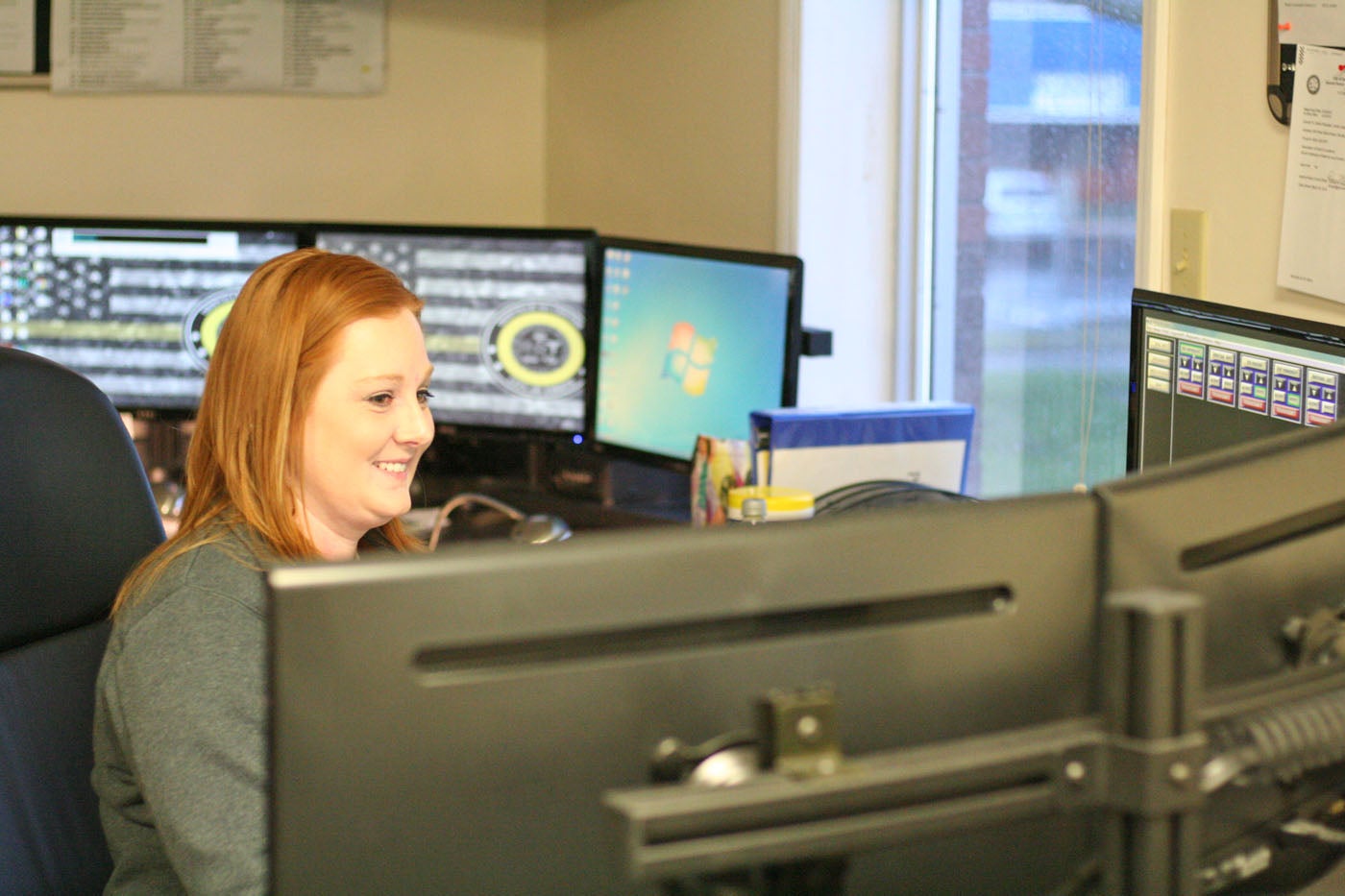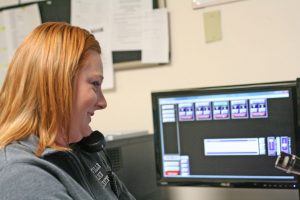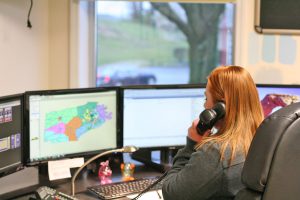One Day: Josselyn Spanyer
Published 10:04 am Monday, April 2, 2018

- Kendra Peek/kendra.peek@amnews.com Josselyn Spanyer monitors the computers on Thursday.
Josselyn Spanyer
Danville 911 Dispatcher
When 911 is dialed and dispatchers answer at the end of the line, it’s their job to get the necessary information and get it to the people who need it.
“We have to keep (people) calm and reassure them, help’s coming,” said Josselyn Spanyer, a 5-year dispatcher at the Danville 911 Center. Days start at 7 a.m. for Spanyer.
“We receive and take 911 calls, which can be anywhere from people asking directions to (finding) someone who has passed away. There’s a wide variety we deal with,” Spanyer said. “We could sit here for several hours and not receive anything or we could have 10 calls in five minutes.”
Spanyer said they also make sure responders get the information they need before they arrive on scene.
“We don’t want them to walk into a house with someone who’s got four warrants and not know that,” she said. “And it’s not just officer safety — that goes for all first responders.”
She works Saturday through Wednesday, sometimes working overtime, like she did Thursday.
Providing emergency medical dispatch (EMD) services has led to more overtime; Spanyer said they’re keeping at least four dispatchers on first and second shifts and two on third shift.
EMD means dispatchers now offer instructions to callers on how to help with medical emergencies before EMS arrive.
“if we can save a life by providing some of those instructions, then absolutely, it’s definitely a benefit,” she said.
For Spanyer, being a dispatcher is about helping people.
“Every day I come in here, I help somebody. Whether it’s someone needing an ambulance or somebody’s had property damage, I have changed and helped somebody for the better,” she said.
Spanyer’s father was a volunteer firefighter and her husband, David Spanyer, is a firefighter with the Danville and Boyle County fire departments and a paramedic with Boyle County EMS.
She said it was a personal tragedy in her family that led her to become a dispatcher.
“It brought to light the importance of emergency services and having someone there to send that help,” she said.
Anytime she answers the phone, Spanyer said, “it’s always in the back of my mind” that it could be someone she knows calling for help.
Spanyer said the dispatchers become like family, a family that includes the responders they send.
“It’s more than a job … We take it very seriously making sure everyone goes home at night and also that the citizens get the best care that we can give them,” she said.
Sometimes that means they have to ask a lot of questions.
“People get frustrated with the types of questions or the amount of questions we may ask, but they’re not quite understanding that it’s my responsibility to keep them safe as well as the people coming to them safe,” Spanyer said.
She said the job has it’s difficult moments. She’s answered calls from victims or family members finding a victim. One, she said, was when a boy found a family member who had been killed.
“I can still remember talking to him. Those are the calls we take home. That shift may be over, but that call goes home with us and we still remember them,” Spanyer said. “Just because I’m not on the clock, doesn’t mean that’s done for me.”
In the heat of the moment, Spanyer said, it’s easy to stay focused. After the call is tough.
“When we’re in the call, we’re so focused … When we stop and step back, it’s like, ‘I need a minute. I’ve got to collect me,’” she said. “Everybody has a call that bothers them more than (other call) … And, working together, we understand that. We’ve learned each other’s tics and what bothers them.”








